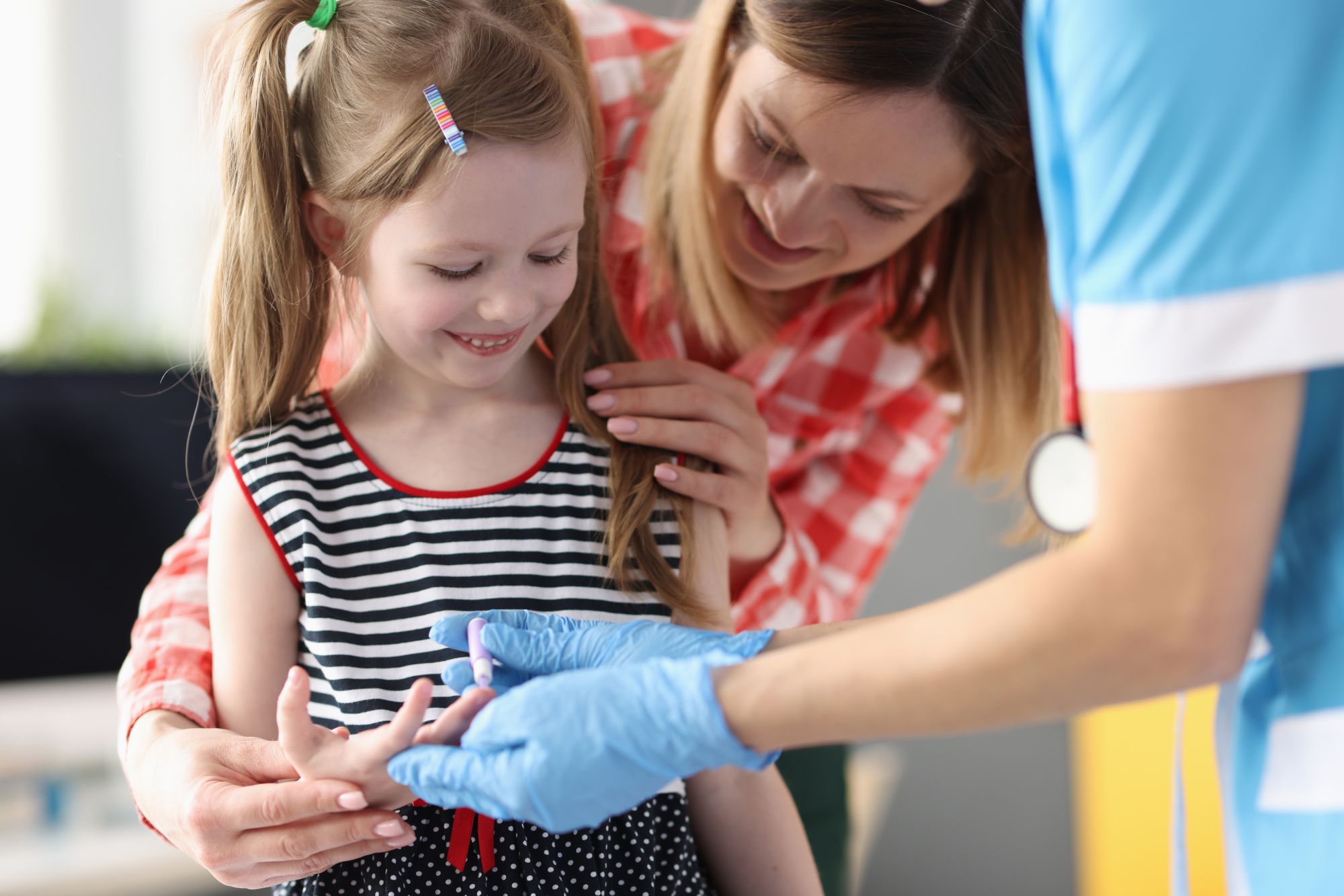UK HealthCast: What to know about childhood diabetes

UK HealthCast is a podcast series featuring interviews with UK HealthCare experts on a variety of health-related topics.
For this episode, we spoke to Andrea Francis, MS, RD, LD, MLDE, CDCES, a registered dietitian and licensed diabetes educator at the Barnstable Brown Diabetes Center. She spoke with us about childhood diabetes and what parents should know about managing the condition. Here’s a preview of our conversation
Can you give us a quick definition of diabetes?
Diabetes is a condition where the body has trouble regulating its blood glucose, or you might hear that referred to as blood sugar. There's multiple types of diabetes and it affects all ages.
What types of diabetes typically affect children?
The most common types of diabetes in children are type 1 and type 2 diabetes. Type 1 diabetes is actually one of the most common chronic conditions for children in the United States. Type 1 diabetes is an autoimmune disease. Normally the pancreas makes insulin to convert the food we eat into energy. With type 1 diabetes the body mistakenly destroys those insulin-producing cells.
The only treatment is to take multiple daily doses of insulin either using an insulin pin or an insulin pump, along with counting carbohydrates that the child eats and monitoring blood glucose levels multiple times a day. All of those steps can help keep the blood glucose levels in a healthy range. To give you a picture, the annual incidents of children diagnosed with type 1 diabetes is 18,200 kids per year according to the CDC. Type 2 diabetes is the other one that we see most commonly. If you ever hear of prediabetes, that's the precursor to type 2.
Type 2 diabetes is more of a metabolic disorder, so the person's body still makes insulin, but the body is resistant to using that insulin so it's not as effective or efficient. If interventions are started early, type 2 diabetes can be managed with nutrition, exercise and perhaps oral medication like metformin.
What are some signs and symptoms that your child might be at risk?
Signs of type 1 diabetes include increased thirst, increased hunger, increased need to urinate. Weight loss, blurry vision, extreme fatigue, those are really common signs. When we're at the point of diabetic ketoacidosis, the child is very sick. We see that a lot when children are first diagnosed with type 1, and that includes fruity smelling breath, abdominal pain, vomiting, trouble breathing.
Diabetic ketoacidosis is a life-threatening event, and that's when I tell parents and caregivers you should seek treatment immediately. Wanna give you a chance here we think about education.
How can the Barnstable Brown Diabetes Center help with childhood diabetes?
We offer a variety of classes and appointments. Usually after patients are initially diagnosed, they'll come to an education class where we build on these survival skills. Like teaching how to give insulin or how to check blood sugar. We then talk about day-to-day experiences and tips and tricks to manage diabetes, including how to manage diabetes at school using diabetes technology, what to do when the child is sick, how to help keep blood sugars in range when kids are playing sports.
These are really big things that families need to know so they can be successful. We also offer training on using diabetes technology like continuous glucose monitors and insulin pumps.
Overall, diabetes educators are very essential part of this team in diabetes Education is an essential part of being able to navigate the ins and outs of diabetes care. We really try to individualize care and education at Barnstable Brown because each person with diabetes has different needs. We really want all of our patients and their families to be successful with diabetes, and we believe that a child can still be a child and diabetes shouldn't hold them back.
Listen to Andrea Francis’ entire appearance on UK HealthCast below:





